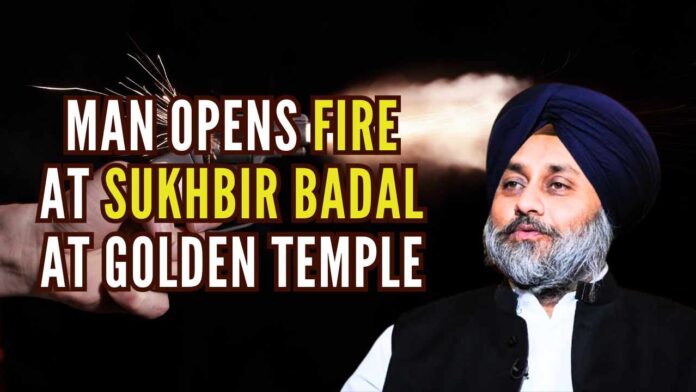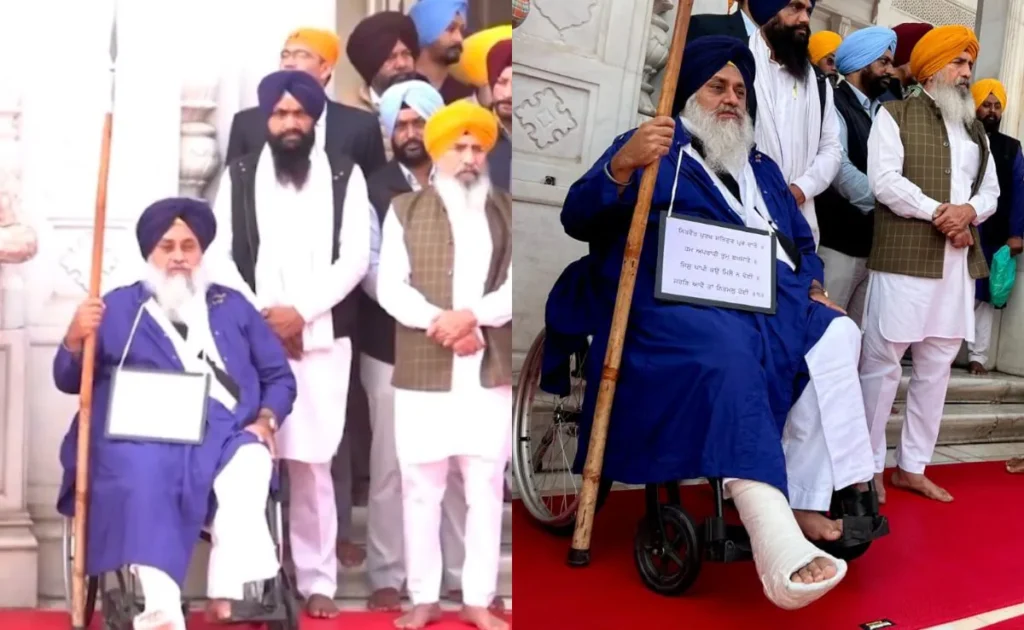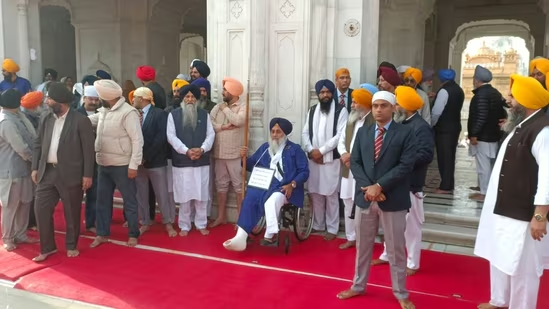Sukhbir Badal Resigns as SAD President: A New Chapter for the Shiromani Akali Dal
Sukhbir Singh Badal, a prominent leader in Punjab politics and the long-serving president of the Shiromani Akali Dal (SAD), has stepped down from his position after nearly 16 years at the helm. This resignation marks the end of an era for the Badal family’s dominance in the party, as Sukhbir’s father, Parkash Singh Badal, previously led the SAD from 1995 until 2008.
Reasons Behind the Resignation
Sukhbir’s decision to resign comes at a critical juncture for the party, which has faced internal dissent, electoral defeats, and challenges to its relevance in Punjab’s political landscape. The SAD’s performance in recent elections has been poor, with the party managing to secure only one seat in the 2024 Lok Sabha elections. Additionally, Sukhbir was recently declared “tankhaiya” (guilty of religious misconduct) by the Akal Takht, the highest temporal authority in Sikhism, for past actions taken during the SAD’s government between 2007 and 2017. This decision has intensified calls for a change in leadership to rejuvenate the party and restore its credibility.
Leadership Transition
Balwinder Singh Bhundar, a senior leader and loyalist of the Badal family, has been appointed as the working president of SAD until a new president is elected. The SAD has announced plans for organizational restructuring, beginning with a membership drive followed by internal elections, culminating in the election of a new president on December 14, 2024.
Implications for SAD
Sukhbir’s resignation is seen as an opportunity for the SAD to redefine its strategies and reconnect with its voter base. Party spokespersons and senior leaders have emphasized the need for leadership that can bridge the gap between the party’s traditional Sikh support base and the broader electorate in Punjab. However, the path ahead will be challenging, as the party seeks to overcome internal divisions and rebuild its influence in a politically dynamic state.
This development underscores the shifting dynamics in Punjab’s politics, where regional parties like SAD are striving to remain relevant amid the rise of national parties and newer political players. It also signals a potential transformation within the SAD as it seeks to align itself with contemporary political and social realities in Punjab.
Sukhbir Badal: A Political Crossroad and the Challenges Ahead
Sukhbir Singh Badal, the former Deputy Chief Minister of Punjab, and long-time president of the Shiromani Akali Dal (SAD), is currently navigating one of the most turbulent phases of his political career. As of November 2024, Badal stepped down from his leadership position amid intense pressure from both within his party and from the Sikh clergy. This decision marks the culmination of a series of setbacks for the SAD, which has been reeling from poor electoral performances and internal party conflicts.
The Path to Resignation: Political Setbacks and Internal Struggles
Sukhbir Badal’s resignation as the president of the Shiromani Akali Dal (SAD) came after nearly two decades of leadership. His tenure saw both successes and failures, but it is his recent struggles that have put his political future in jeopardy. Following a series of disappointing electoral results for the SAD in Punjab, and increasing dissatisfaction within the ranks, Badal found himself under mounting pressure to step down. These challenges culminated in his resignation on November 16, 2024【21†source】.
His decision, however, did not mark the end of his political challenges. Along with the party’s declining fortunes, Badal is also dealing with a religious issue that has deeply affected his credibility. On August 30, 2024, the Akal Takht, the highest temporal body of Sikhism, declared Sukhbir Badal as “tankhaiya” (guilty of religious misconduct). This declaration followed allegations about his leadership during his tenure as the Deputy Chief Minister of Punjab from 2007 to 2017, where certain decisions were perceived to be against Sikh principles【21†source】.
A Religious Dilemma: Tankha and Excommunication
The issue of being marked tankhaiya is not merely a political setback for Badal; it holds deep religious significance in the Sikh community. The Akal Takht’s decision to consider him guilty of religious misconduct has stirred tensions within both the SAD and the broader Sikh community. While Badal did seek forgiveness from the Akal Takht’s leadership, the final decision on his penance or punishment remains unresolved.
Sikhism mandates that those declared tankhaiya must undergo atonement for their misdeeds, a process that may involve public apologies or penance. The uncertainty surrounding his punishment has left Badal in a precarious position, with both political and religious leaders questioning his future leadership role. The delay in announcing his punishment has further complicated matters, as it creates an ongoing political crisis for the SAD【21†source】.
The Decline of SAD: A Broader Crisis
Sukhbir Badal’s resignation signals more than just the fall of one leader; it highlights a larger crisis within the Shiromani Akali Dal. The party has been facing increasing factionalism, with many party members calling for a leadership change. The SAD’s poor performance in the Punjab Assembly elections, as well as a growing disconnect with younger voters, has only exacerbated the sense of crisis.
Badal’s leadership was once synonymous with the SAD’s stronghold in Punjab, particularly among the Sikh population. However, in recent years, his decisions have been scrutinized heavily, particularly in relation to the handling of religious and social issues. These decisions, viewed as controversial by many, have alienated significant sections of the party and its base, contributing to the decline in SAD’s influence【21†source】.
The Road Ahead: What’s Next for Sukhbir Badal?
Despite these setbacks, Sukhbir Badal is unlikely to exit the political scene quietly. His political career, marked by decades of influence, still holds sway among many in Punjab. His next steps are crucial, both for his personal future and for the future of his party.
- Religious Attonement
The most immediate challenge Badal faces is fulfilling the religious penance required by the Akal Takht. Whether or not he can reconcile with the Sikh clergy will play a significant role in shaping his future. His ability to regain religious credibility will be pivotal in any potential political comeback【21†source】. - Leadership in SAD
With the SAD’s leadership in flux, Badal’s resignation may allow for a new generation of leaders to rise within the party. However, this also presents an opportunity for Badal to reassess his position and potentially stage a comeback if he can rebuild the party’s base. His leadership will be crucial if the SAD is to regain its position as a dominant force in Punjab politics. - Public Perception
The key to Badal’s survival in politics will depend on how he manages public perception. His political future could be shaped by how he navigates his religious and political challenges, and whether he can unite the fragmented factions within the SAD. - Potential Political Alliances
Badal may also look to forge new alliances with other regional parties or national leaders in a bid to retain his influence in Punjab. Political alliances could help him rebuild his position and counter the challenges posed by rival political forces【21†source】.
Conclusion: A Defining Moment for Sukhbir Badal
Sukhbir Badal’s political journey has reached a crossroads. With mounting challenges both from within his party and from the Sikh clergy, his future remains uncertain. However, the coming months will be crucial in determining whether he can salvage his leadership and reassert his position in Punjab politics. His resilience, political acumen, and ability to navigate the complex terrain of religious and political pressures will define the next phase of his career.
The Shiromani Akali Dal, too, stands at a crucial juncture. Whether the party can recover from the turmoil and reestablish itself as a major force in Punjab will depend on the new leadership it chooses and how it adapts to the changing political and religious landscape. Sukhbir Badal’s journey, though troubled, is far from over.


